News & Publications
Discover news about our activities and the latest publications on cybersecurity and emerging technologies.

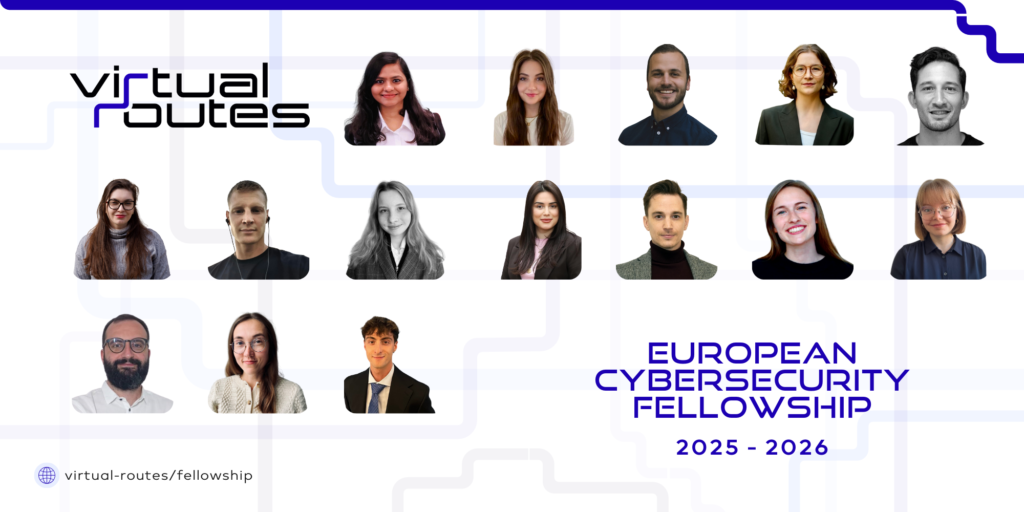
The 2025-2026 Virtual Routes European Cybersecurity Fellowship Cohort: Wealth of Experience, Diverse Expertise
The Virtual Routes European Cybersecurity Fellowship welcomes fifteen new fellows for 2025-2026 from government, civil society, academia and the private sector.

Binding Hook Live: Where Digital Tech and Global Affairs
We are pleased to announce Binding Hook Live, a one-of-a-kind event bringing together leading voices in cybersecurity and emerging technologies. Hosted by Binding Hook, part of Virtual Routes, this exclusive event takes place at the iconic Underbelly Boulevard Soho in London on October 27, 2025.
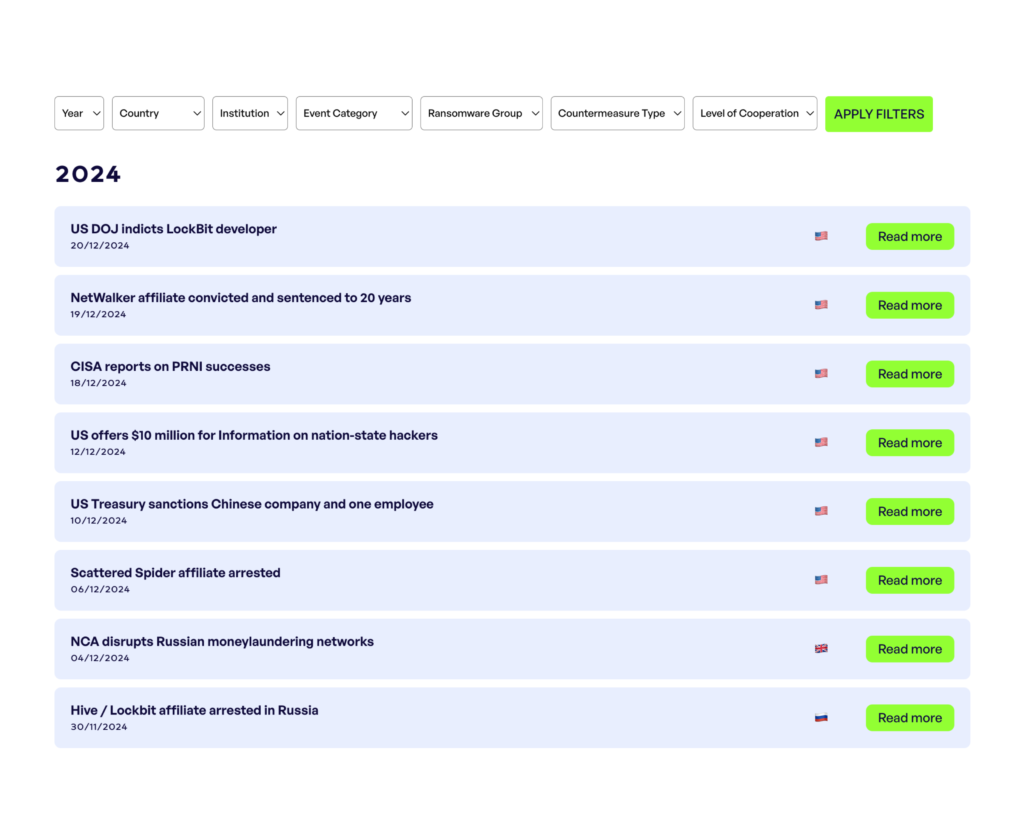
The Ransomware Countermeasures Tracker
The Ransomware Countermeasures Tracker is a resource created to identify trends in government actions against ransomware, highlight areas where we see more or less activity, and establish a baseline of awareness that can support future analyses of government effectiveness.

The Cybersecurity and AI Readings Portal
The Cybersecurity and AI Readings Portal is a resource created as part of our Cybersecurity Seminar Program supported by Google.org. This portal is designed to assist instructors at universities across the world in building their syllabus for courses in cybersecurity and artificial intelligence.

Cybersecurity Seminars
Google.org Awards $1M Grant to Virtual Routes to Launch Cybersecurity Seminar Program in the Netherlands
This marks the first time Virtual Routes will independently implement the program, after supporting its successful deployment in higher education institutions across Europe, the Middle East, and Africa.
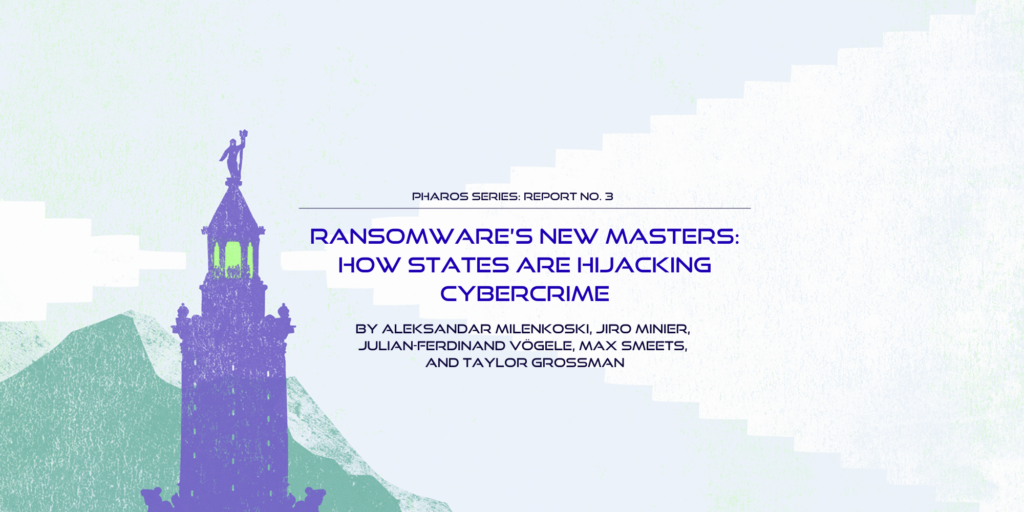
Research & Analysis
Pharos Report No. 3: Ransomware’s New Masters: How States Are Hijacking Cybercrime
The third report in the Pharos Series, Ransomware’s New Masters: How States Are Hijacking Cybercrime is authored by Aleksandar Milenkoski, Jiro Minier, Julian-Ferdinand Vögele, Max Smeets, and Taylor Grossman.
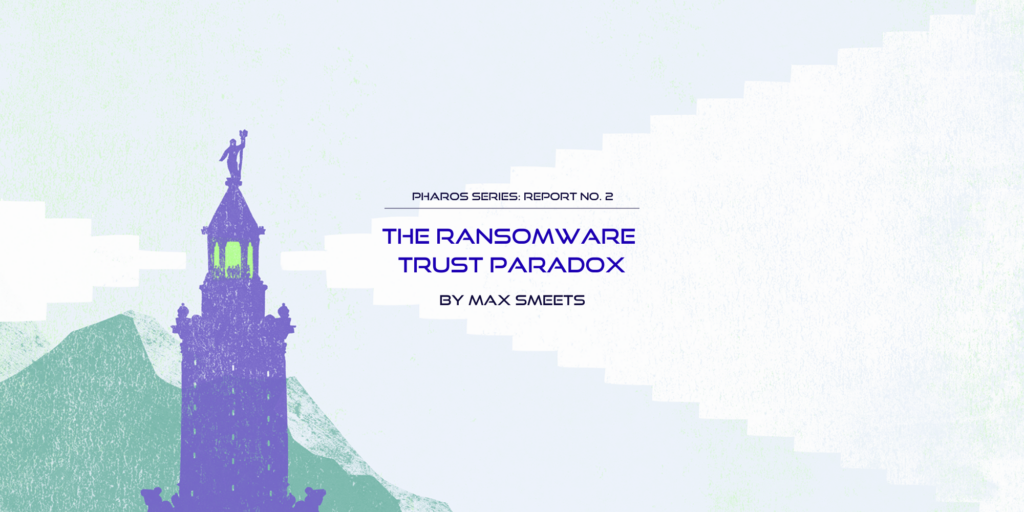
Research & Analysis
Pharos Report No. 2: The Ransomware Trust Paradox
Virtual Routes is pleased to release the second report in the Pharos Series, The Ransomware Trust Paradox by Max Smeets.

Cybersecurity Seminars
ESIEA launches Google.org Cybersecurity Seminars program in Paris
On 7 April, the Ecole Superieure d’Informatique, Electronique, Automatique (ESIEA) launched its Cybersecurity Seminars program at its campus in Paris.

Virtual Routes
Apolline Rolland joins Virtual Routes as Policy Researcher
Virtual Routes welcomes Apolline Rolland to the team as a Policy Researcher in Cyber and Emerging Technologies. Prior to joining Virtual Routes, Apolline worked as a cyber and strategic intelligence consultant at Forward Global.
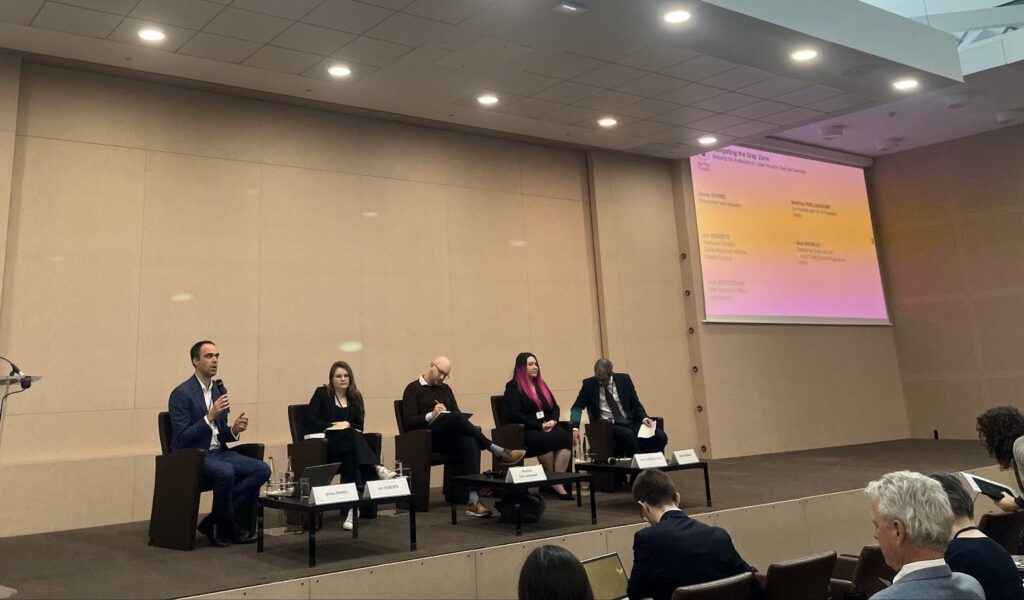
Research & Analysis
Virtual Routes contributes to second Pall Mall Process conference in Paris
On 3-4 April, the second conference of the Pall Mall Process took place in Paris. The Pall Mall Process is a multistakeholder initiative launched by the UK and French governments to address the risks of commercial cyber intrusion capabilities (CCICs).

Cybersecurity Seminars
Student Intake Questionnaire for the Google.org Cybersecurity Seminars Program
If there is high demand and limited space for the Google.org Cybersecurity Seminars Program, universities may use this intake questionnaire as a guide to help select a diverse and balanced group of students while ensuring maximum impact and inclusion.

Fellowship
The 2025-2026 Virtual Routes European Cybersecurity Fellowship Cohort: Wealth of Experience, Diverse Expertise
The Virtual Routes European Cybersecurity Fellowship welcomes fifteen new fellows for 2025-2026 from government, civil society, academia and the private sector.

Binding Hook
Announcing Binding Hook Live: Where Digital Tech and Global Affairs Meet
We are pleased to announce Binding Hook Live, a one-of-a-kind event bringing together leading voices in cybersecurity and emerging technologies. Hosted by Binding Hook, part of Virtual Routes, this exclusive event takes place at the iconic Underbelly Boulevard Soho in London on October 27, 2025.

Research & Analysis
Introducing The Pharos Report Series: The Ransomware Playbook and How to Disrupt It
Virtual Routes is launching the Pharos Report Series, a new report series shedding light on cybersecurity and emerging technology challenges. The series aims to offer clear expert insights helping policymakers, researchers, and practitioners navigate evolving threats.
